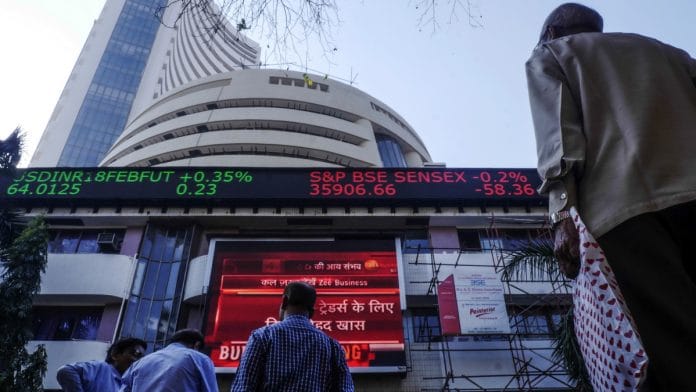Singapore: The Indian stock market is set to see billions of dollars of inflows after a policy tweak comes into effect on April 1, analysts predict.
The nation will increase the foreign portfolio investment limit in a company from the current 24% to a higher threshold set for its sector. The move could eventually trigger net inflows of between $2 billion and $2.5 billion to Indian equities from passive funds, according to estimates from Target Investing and Morgan Stanley.
The change will likely increase India’s weighting in the MSCI Emerging Markets Index by about 70 basis points, according to the two brokers, compared with 8.6% as of last month. The inflows will add to the demand that has driven Indian stocks to record highs just as the pace of economic growth has slumped to its lowest in a decade.
Last year, India stocks saw the biggest annual inflows by foreign investors since 2014
Global index compilers such as MSCI Inc. take into account the percentage of shares available to investors when determining a stock’s representation in equity gauges. MSCI’s next semi-annual review will happen on May 12 and will be effective from June 1, according to its website. A spokeswoman for the index provider declined to comment.
India’s maximum permissible investment limit differs across sectors. For example, foreign investors can hold only up to 49% in an insurance company, while they can own 100% in a coal miner.
Unless companies pass resolutions to keep the foreign portfolio investment limit at 24%, all firms in India will irreversibly have their threshold lifted to the sector’s cap after April 1, Morgan Stanley strategists including Sheela Rathi and Ridham Desai wrote in a note last month.
The stage is set for India’s weight to rise in MSCI Emerging Markets Index, the note added.
Also read: India’s current account deficit is at risk from global slowdown & oil prices: RBI Governor






